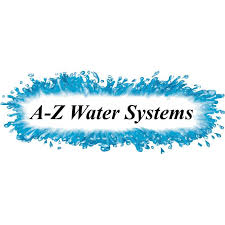Maine Radon Testing
Maine Radon Testing – Radon is an invisible, odorless, and tasteless radioactive gas that naturally occurs from the breakdown of uranium in soil, rock, and water. In Maine, due to the state’s unique geology, radon levels are notably higher compared to many other regions. This makes radon testing an essential practice for homeowners and renters alike. Contact A-Z Water Systems to schedule a test if you aren’t sure your home has been tested.
Why Radon Testing Is Crucial in Maine
1. Elevated Radon Levels in Maine Homes
Approximately 36.5% of homes in Maine have radon levels that meet or exceed the Environmental Protection Agency’s (EPA) action level of 4 picocuries per liter (pCi/L). This is significantly higher than the national average and underscores the importance of regular radon testing.
2. Health Risks Associated with Radon Exposure
Radon exposure is the second leading cause of lung cancer in the United States and the primary cause among non-smokers. Ingesting or inhaling radon can lead to serious health issues, including lung cancer and other respiratory conditions.
3. Radon in Drinking Water
In Maine, radon can also enter homes through well water. When water containing radon is agitated, such as during showering or washing dishes, the gas can become airborne and increase indoor radon levels. The Maine Bureau of Health recommends that radon levels in drinking water not exceed 4,000 pCi/L. If levels are higher, mitigation steps should be taken promptly.
Steps to Protect Your Home
1. Conduct Regular Radon Testing
It’s recommended to test your home for radon every two years, especially if you’ve made structural changes, moved into a new home, or drilled a new well. Testing is the only way to determine if your home has elevated radon levels.
2. Implement Mitigation Systems
If radon levels are found to be high, installing a radon mitigation system can effectively reduce indoor radon concentrations. These systems typically involve venting radon from beneath the home’s foundation to the outside air.
3. Seek Professional Assistance
For accurate testing and effective mitigation, it’s advisable to consult with certified radon professionals. In Maine, the Department of Health and Human Services maintains a list of registered radon service providers.
Maine Radon Testing
Given the elevated radon levels in Maine and the associated health risks, regular radon testing is a critical component of home maintenance. By staying informed and proactive, you can ensure a safer living environment for you and your family.
For more information on radon testing and mitigation, visit the Maine Indoor Air Quality Council or contact A-Z Water Systems.

